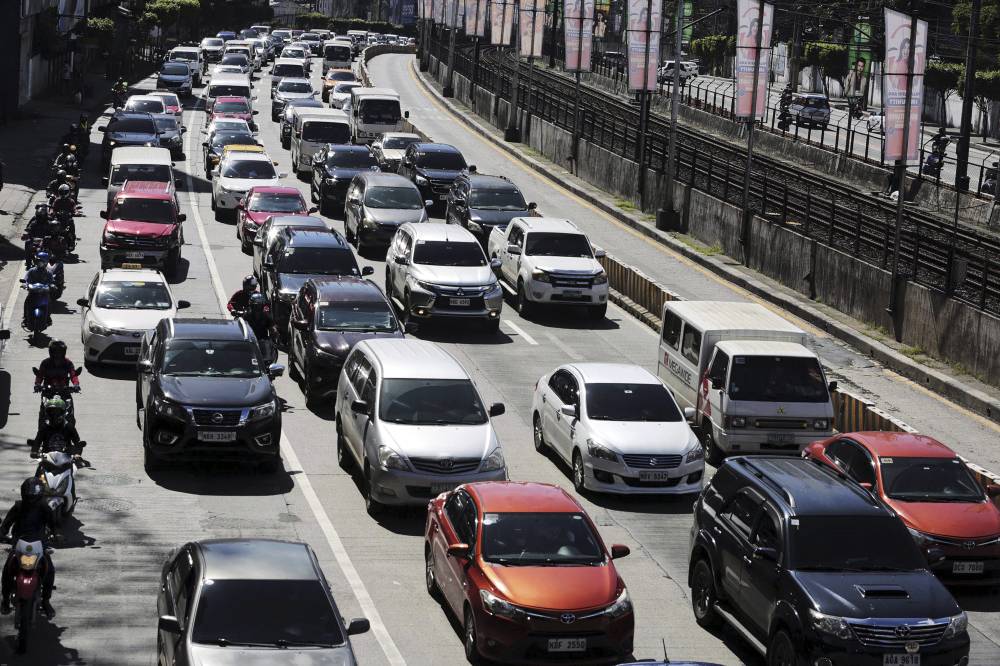Independent transport safety board can save lives and money – FIA, AAP

When it comes to things like road crashes in the Philippines, even we know the standard reasons (or excuses) that the people involved turn to.
Things like “Nawalan ng preno” [The brakes failed] or “Madilim ‘yung daan” [The road was dark] often pop up in news reports. But the fact that these reasons are still active soundbites in primetime news, reading like lines out of a worn-out telenovela script, points to a much deeper problem.
“We don’t have any data for this, in terms of liability,” said lawyer Robby Consunji, who is also Automobile Association of the Philippines (AAP) Trustee and chair of its Government Liaison Committee.
“For the Tanay bus crash, the Philippine National Police (PNP) did not have the resources to investigate – it just went around in circles,” he added. “The data gathering and data generation is so poor. We’re trying to learn from vague memories.”
Consunji was referring to the February 2017 crash of a tourist bus in Tanay, Rizal that killed 15 people, including the bus driver. The police said the driver deliberately rammed into an electrical post after the bus’ brakes allegedly failed.
The AAP Trustee said incidents like these are why an independent transportation safety board must be established to preserve the public’s trust in the country’s entire transportation system, which includes roads, railways, air travel and marine vessels.

Deadly and expensive
Although we are familiar with the odd “fender-bender,” road crashes are not only potentially lethal, but also put a huge toll on us taxpayers.
The World Health Organization (WHO) said in its 2018 Global Status Report on Road Safety that road crashes killed 1.35 million people worldwide in 2016, beating even HIV and AIDS, tuberculosis and diarrhoeal diseases. More chillingly, road crashes are also the leading cause of death globally of people aged 5 to 29.
Meanwhile, the Metropolitan Manila Development Authority said 85,954 road crashes occurred in 2023, including 352 fatalities and 21,103 injuries. This translates to around 235 crashes a day in Metro Manila, up from 197 cases a day in 2022.
The MMDA attributed this to population growth and urbanization, inadequate road capacity, insufficient road signs, human error, inconsistent enforcement of traffic laws, distracted driving, insufficient road safety education and the rising popularity of electric two-wheelers.
The WHO also said road crashes generally cost up to 3 percent of a country’s Gross Domestic Product, which is a measure of an economy’s strength. Using the World Bank’s computation of the Philippines’ 2023 GDP, dealing with the aftermath of these entirely preventable incidents cost an estimated P730 billion that year.
However, the lack of a national, inter-agency road-crash database makes it more difficult to establish causes beyond the usual telenovela lines from news reports.
Unable to investigate
Consunji said the problem is worsened by the Philippines’ severe lack of credible investigative capability, even among agencies like the PNP, the National Bureau of Investigation (NBI) and the Civil Aviation Authority of the Philippines.
“Have you ever seen a PNP report with speed?” he said. “You’ve all seen the ‘V1 (Vehicle 1) traveling in the opposite direction and crashed into V2 (Vehicle 2).’ It’s shoddy work.”
Consunji noted that although courts do eventually uncover the causes of transportation crashes, the process can take decades. One example is the February 2014 road crash that claimed the life of comedian Arvin “Tado” Jimenez and 13 others after the bus they were riding fell down a ravine in Bontoc, Mountain Province.
“What about the bus crash of Tado, what happened?” he said. “Nobody knows. Are we going to wait for the court process 15 years later?”
Trusted by the people
Former U.S. National Transportation Safety Board (NTSB) acting chair Tho Bella Dinh-Zarr, who is part of the Federation Internationale de l’Automobile (FIA) Foundation, said an independent transport safety board must be completely separate from politics to succeed.
“You can’t make a recommendation to the government if you’re part of the government,” she told Inquirer Mobility in an exclusive interview at the sidelines of the FIA Region II Roundtable in Cebu.
“Even though NTSB was technically part of the government, it was separately funded,” Dinh-Zarr added. “And that’s the importance of having independence – it’s so you can be honest, you can be impartial, you can really devote your in-depth investigation to what’s going to prevent this terrible tragedy from happening again.”
Dinh-Zarr also said even though the NTSB is a very small agency, it had the full trust of the American people.
“It has a huge impact and, in the end, it actually saves the other agencies money and time, so they will rely on this agency to do things that they may not feel the ability to do or may not have the capacity to do,” she said. “And really, it’s all about prevention, isn’t it?”
PTSB not dead yet
House Bill No. 9030 and Senate Bill No. 1077 aimed to set up a Philippine Transportation Safety Board (PTSB) that functions similarly to the NTSB.
However, President Ferdinand Marcos Jr. vetoed the measures last July 2022, saying that a PTSB would not only duplicate the functions of other agencies, but also cause confusion on which agency would have investigative authority.
“I beg to disagree with the President vetoing it,” Consunji said. “If you pull out the PNP or NBI to investigate, do they have the technical competence? When you look at the answer of the President, the organizations in play are no longer effective.”
However, Senate Bill No. 1121 revives the push for a PTSB, which would fall under the Office of the President and serve as the primary investigative body in any transportation incident.
“I think it will act like a Constitutional Commission,” Consunji said. “If it is like the Commission on Human Rights, then the agency would not be beholden to the powers that be. The elephant in the room is the organizational dynamics of government agencies.”
Perhaps a thorough report from an independent PTSB would offer clearer ways to make our roads safer than another “Nawalan ng preno.”

















